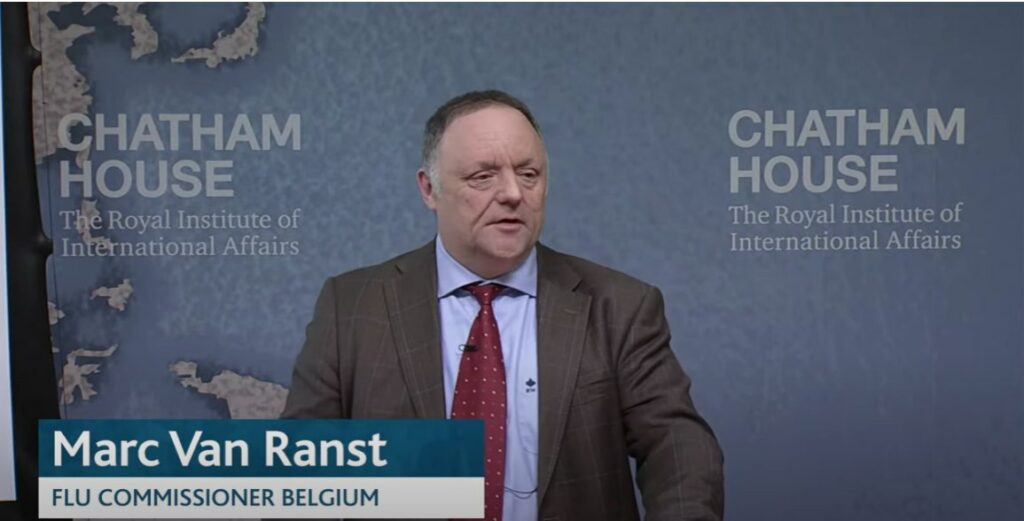“I went to the first couple of funerals. You have to be very quiet sit in the back but it shows that you care and I think that was at the time quite important.
So all in all at that time the overall feeling in the population in the press was that the Belgian approach is reasonable. In fact we wanted to be calm cool and collected and our mantra was and that was from day one it is comparable more or less to seasonal influenza in terms of outcome but we have to prepare for severe scenarios like in 1918 the first wave was rather mild and you could not predict that a second wave would carry high mortality. We focus on low cost basic hygiene measures. We did not do any school closures.
We used antivirals for high-risk groups. Actually we used antivirals in the beginning for people who were ill. I had pre-positioned cars in the different provinces and they would drive antivirals to patients when they would be diagnosed by influenza in order to delay the onset of the epidemic and that worked until the end of the school year.
We only purchased one dose of vaccine per person and the vaccination plan would be to vaccinate more or less the same high-risk groups as for seasonal influenza.
And then the vacation came. And that is communication-wise a very dangerous period. It’s dangerous period because the more untrained journalists are at the helm and you get the weirdest questions. They’re understaffed so more articles from other articles will come in and contaminate your message and that was a weird period.
Then comes the time inevitably when they’re going to talk about you. The flu commissioner is a really great guy. And then you get the feel-good articles. When they do that they also sharpen the axis at the same time.
And then everything is set about the pandemic….
And then you had to pick who is going to be vaccinated first. And then women and children first whatever. I mean risk groups they were important. And then I misused the fact that the top football clubs in Belgium inappropriately and against all agreements they made their soccer players priority people. So I said I can use that because if the population really believes that this vaccine is so desirable that even these soccer players would be dishonest to get their vaccine I said I can play with that so I made a big fuss about it which worked and actually these vaccination campaigns by the GPS went really really well in a number of weeks. Everybody could be vaccinated.
And then you get people saying “The vaccine is unsafe” and then you get the swine flu hoax and the vaccine could kill you say no to the vaccine – that atmosphere starts. And then after the crisis everybody becomes smart and you have to accept that from the get-go.
And then the overall statement was the government did too much of course because the number of deaths were disappointing to some people. And then all the books are written and everybody uses all the data and forgets that you had to take the decisions based on a fragment of the data that were available or that would be available later on.
And then it was turned into a scam. People were really making money out of it and I think the council of Europe played a very deep role in this. This is Wolfgang Wodark and I want to shame him actually because he in the council of Europe had a motion for recommendation fake pandemics at threat for health. They basically said that all these virologists and vaccinologists all have money in their pocket; that they’re dishonest people. That’s easy to say. This is when you google for H1N1 of course there was a peak in October and November and you didn’t hear Wodark at that time. When you google Wodark you see that it starts nicely after the end of the pandemic. People become very brave at the end of the pandemic. I think that’s not good.
Are we ready for the next pandemic? I don’t think we are. But I would say that pandemics are like a box of chocolates. And here I would like to invoke the words of the philosopher Forrest Gump – you never know what you’re gonna get. Thank you.”

